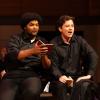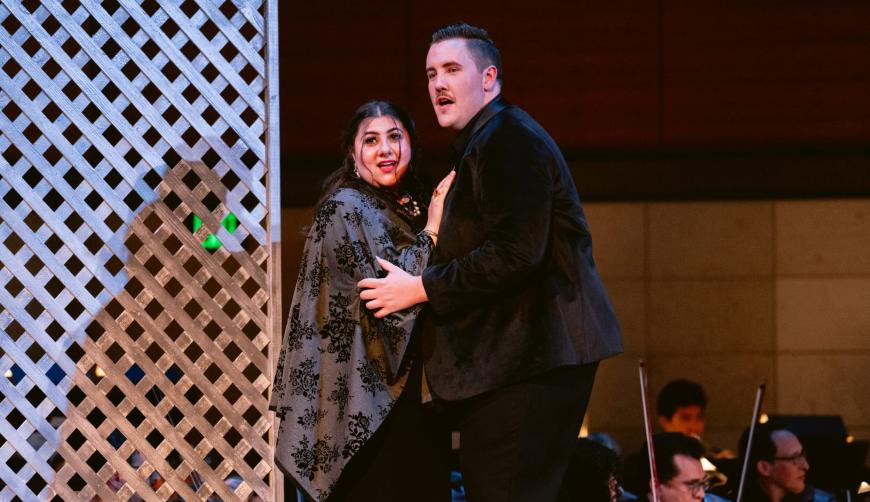
For the 68th year, the public performances of the Merola Opera Program offer an overabundance of delightful discoveries.
The Saturday performance of Merola’s Schwabacher Summer Concert at the San Francisco Conservatory of Music showcased remarkably beautiful voices, great talent, and big hearts from young singers on their way to major opera houses.
Imagine Saturday’s concert was a baseball game with a team you’d never seen before. Well, there were home runs galore. The only difference is that jumping up and shouting are rare at a classical concert — though it can happen.
If not restrained by decorum, I would have been shouting to convey how deeply moved I was by Alexa Frankian’s simple, unaffected, beautifully sung Mimi.
The soprano from Oakville, Ontario, embodied the doomed heroine in the third act of Giacomo Puccini’s La bohème, surrounded by stars in the making: tenor Nathan Bryon as Rodolfo, baritone Sihao Hu as Marcello, and the clarion-voiced soprano Hannah Cho as Musetta.
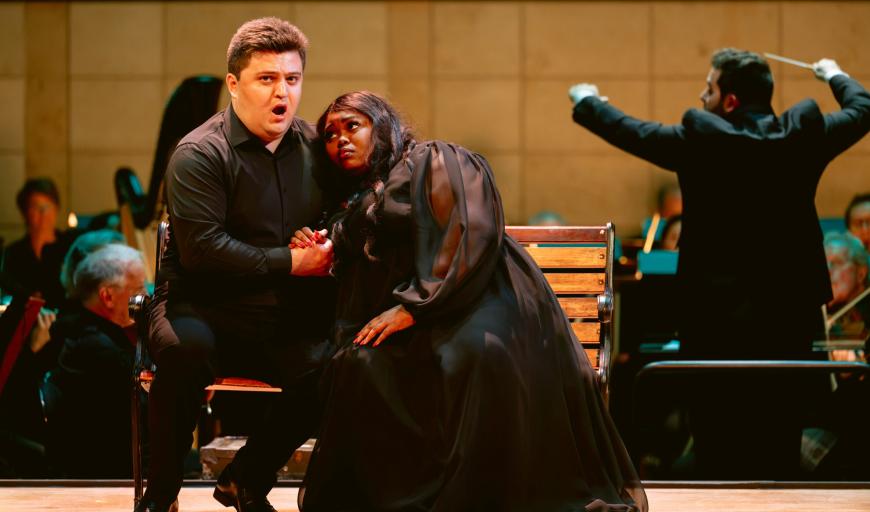
In another of the matinee’s many high points, we heard subtle mastery and inconspicuous control from soprano Elizabeth “Hanje” Hanje (from Vestavia Hills, Alabama) as Marguerite in Act 3 of Charles Gounod’s Faust.
For this, the afternoon’s longest opera excerpt, which took up the entire first half of the concert, the ensemble cast, directed by Merola alum Omer Ben Seadia, also included mezzo-soprano Lucy Joy Altus as Siebel, mezzo-soprano Simona Genga as Marthe, tenor Giorgi Guliashvili as Faust, and bass-baritone Benjamin Sokol as Méphistophélès.
These and the other artists featured in Saturday’s performance are among the 23 singers, five apprentice coaches, and one apprentice stage director from a dozen U.S. states and six countries selected as the 2024 Merola class from over 1,300 international applicants.
Over the decades, the program — founded in 1957 by San Francisco Opera General Director Kurt Herbert Adler and tenor/benefactor James Schwabacher and now with a $4 million budget — has helped launch hundreds of illustrious careers, such as those of Laura Claycomb, Mark Delavan, Joyce DiDonato, Susan Graham, Jill Grove, Thomas Hampson, Janis Martin, Leona Mitchell, Sylvia McNair, Patricia Racette, Michael Schade, Ruth Ann Swenson, Jess Thomas, Carol Vaness, Rolando Villazón, Deborah Voigt, Dolora Zajick, and many others.
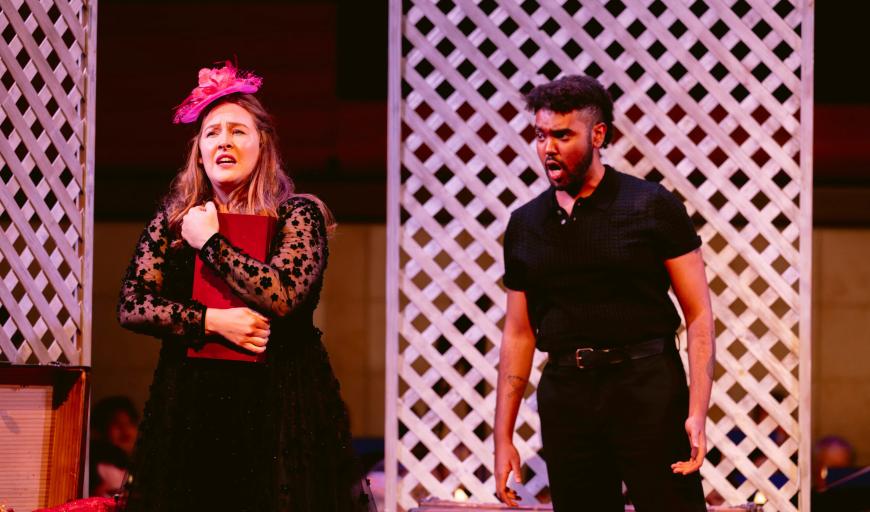
The 12-week-long training program includes lessons, master classes, rehearsals, and performance opportunities. The Schwabacher Summer Concert included only some of the singers; others will appear in the Aug. 1 and 3 production of Mozartְ’s Don Giovanni, and everybody will be seen and heard in the season finale at the War Memorial Opera House on Aug. 17.
Back to the matinee and Faust. The large orchestra, seated upstage behind the singers, followed conductor Louis Lohraseb’s assured direction fluently and effectively. Concertmaster Craig Reiss’s obbligato passages helped voices soar.
Throughout the concert, Ben Seadia dealt with the challenge of staging a “production on pennies” by having six panels on wheels as the set, the panels turned, twisted, and carried on and off — and occasionally bumped into by singers and vice versa.
The second half of the concert began with a dramatic scene from Act 2 of Gaetano Donizetti’s Lucrezia Borgia, with Genga in the trouser role of Orsini and tenor Angelo Silva as Gennaro, the characters planning their futile escape from what Gennaro calls the “Orgia.”
Soprano Tessa McQueen as Nedda in Ruggero Leoncavallo’s Pagliacci made the agony of her character reach out from the stage, willing but unable to give in to the pleading of Silvio, sung by baritone Olivier Zerouali.
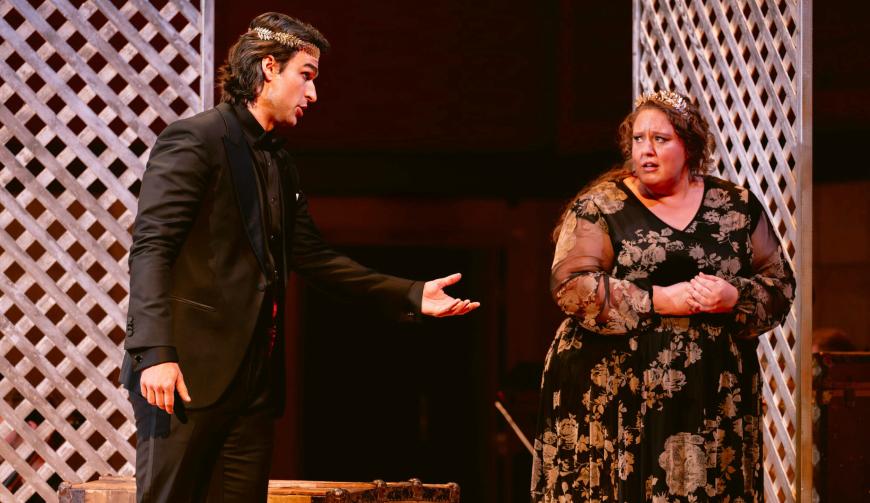
Next, in an Act 3 scene from Jules Massenet’s Cendrillon, mezzo-soprano Kara Morgan as Cinderella ran into mezzo-soprano Lindsay Martin as the Prince lost in the enchanted forest.
Following the La bohème scene — the only one directed by apprentice stage director Anna Theodosakis — the concert closed with an excerpt from Richard Strauss’s Ariadne auf Naxos, soprano Mary Hoskins’s Ariadne reigning with power and stamina over tenor Samuel White’s Bacchus. It was a final home run from an incredible team.


